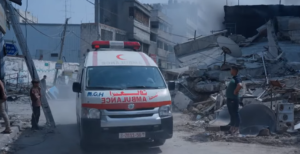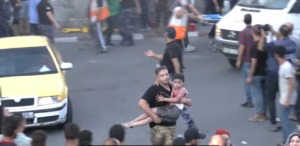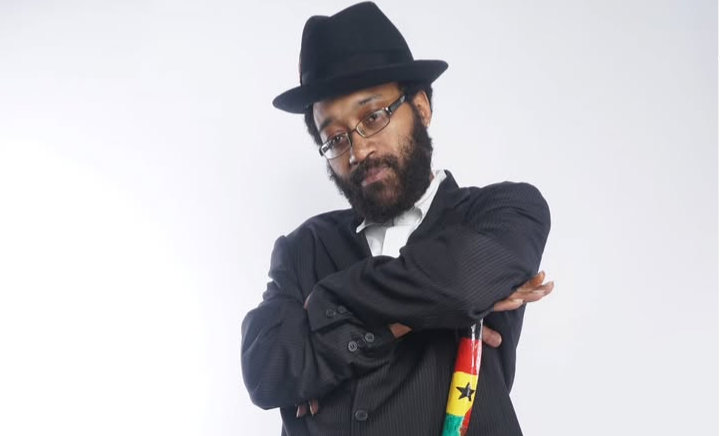Photos: WHO\YouTube Screenshots
UN health agency chief Tedros Adhanom Ghebreyesus welcomed Egypt’s decision on Wednesday to accept dozens of the most critically sick and injured from the stricken Gaza Strip for treatment.

“We have been working with Egypt’s Health Ministry on planning for medical evacuations and will continue to support,” said the World Health Organization (WHO) head.
WHO said that 81 people had managed to cross into Egypt for treatment.
His comments came amid reports that the Rafah passenger terminal between Egypt and Gaza had been allowed to open on an exceptional basis Wednesday morning for the first time since 7 October, to allow the departure from the enclave of some wounded Palestinians as well as foreigners and dual nationals.
The Rafah crossing is the only entry point not controlled by Israel, which imposed a blockade on the enclave in 2007 after Hamas militants seized control of the Gaza Strip.
‘Far greater needs’
Tedros warned on social platform X that “attention must not be diverted from the far greater needs of thousands of patients in Gaza” and reiterated calls for the protection of hospitals as well as an “immediate acceleration” in the flow of medical aid into the Strip.
Tuesday saw the entry into Gaza of the largest convoy since delivery of aid via Rafah resumed on 21 October, composed of 59 trucks carrying water, food and medicines, according to the UN humanitarian affairs coordination office (OCHA).
However, the entry of fuel, “desperately needed to operate life-saving equipment”, remains banned, OCHA said.
In a statement just released via X, WHO said those in serious need within Gaza include thousands of seriously injured civilians (many of them children); more than 1,000 people who need kidney dialysis to stay alive; more than 2,000 needing cancer therapy; 45,000 people with cardiovascular diseases; and more than 60,000 people with diabetes.
‘Sustained access’
“These patients must be able to have sustained access to health care inside Gaza. Hospitals and other health facilities must be protected from bombardment and military use.”
The agency said before 7 October 2023, around 100 patients each day needed to access specialized health care services outside the Gaza Strip because of the lack of needed, specialized health services inside Gaza.
“WHO calls for urgent, accelerated access for humanitarian aid, including fuel, water, food and medical supplies”.
UN chief António Guterres stressed on Tuesday that the volume of aid entering was not commensurate with the sheer number of civilians trapped in the enclave amidst the intensifying fighting.
Shelters ‘four times over capacity’
More than 1.4 million people in Gaza are internally displaced with over 689,000 sheltering in 150 facilities of the UN agency for Palestine refugees (UNRWA).
OCHA said that in recent days, tens of thousands of displaced people, who were previously staying with host families, have relocated into public shelters, seeking food and basic services.
The UNRWA shelters are now nearly four times over their intended capacity, OCHA warned.
Condition of hostages unknown
WHO chief Tedros said on Wednesday in a social media post that the agency continues to be gravely concerned about the condition of the 240 hostages taken from Israel by Hamas on 7 October – “particularly the children, women, older people and those with health conditions who need immediate medical attention”. He reiterated calls for their immediate release.

‘Horrific toll’ on journalists
OCHA noted that the Israeli ground operation in northern Gaza and the outskirts of Gaza city has been gaining in intensity, alongside continuing bombardments.
Israeli airstrikes were reported on Tuesday on the densely populated Jabaliya neighborhood north of Gaza City on Tuesday, which hosts the enclave’s largest refugee camp, home to some 116,000 people.
Addressing the issue of threats to journalists worldwide, UN chief António Guterres wrote on social platform X on Wednesday that the conflict in the Middle East is taking a “horrific toll” on them and called for better safeguards to “defend the journalists who are keeping us informed”.
UN human rights office OHCHR expressed concern on Tuesday about reports of Palestinian journalists killed under Israeli bombardment and reiterated that journalists are civilians and should not be targeted, while military personnel targeting them, must be held to account.







